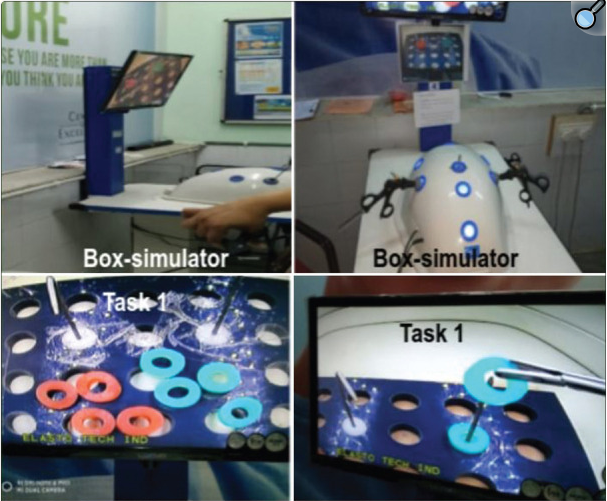
BACKGROUND:
Simulation-based training is an important strategy for skill development in a competency-based curriculum, especially so for laparoscopic surgery given its unique learning curve, need for practice, and patient safety concerns. The study was conducted for postgraduates in two surgical disciplines in a medical college tertiary care center. The study evaluates the acceptability and utility of structured simulation-based training for laparoscopic skills. Simulations provide deliberate practice in the leaner supportive environment.
MATERIALSAND METHODS:
The educational intervention was carried out among the 16 postgraduates from year 2 and year 3 of general surgery and obstetrics and gynecology. A structured training and assessment module was designed and validated, and a 12-week structured training on laparoscopic box trainers was given to postgraduates under faculty guidance. Feedback from postgraduates and faculty was obtained using separate validated questionnaires. The pre- and post-training assessment scores were compared applying the Wilcoxon matched-pairs signed-rank (2-tailed) test using the SPSS Windows Version 20.0 (IBM Corporation).
RESULTS:
Sixteen postgraduates participated in the study. The median satisfaction score of the postgraduates was 4 (range 3–5), a scale of a maximum of 5. The group identified faculty feedback, stepwise skills learning, supportive learning environment, and trainers’ motivation as enabling factors in the training. The faculty observed that the trainees were effectively engaged. The group mean improvement scores in percentage were 40.08 for task 1, 42.08 for task 2, 43.13 for task 3, and 45.63 for task 4.
CONCLUSIONS:
It is feasible to incorporate faculty-guided sessions of simulation training in basic laparoscopy skills for postgraduates in our setup. It is well accepted by the key stakeholders, and we recommend it to be incorporated in the formal training program.
Read the full article here

